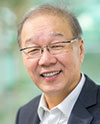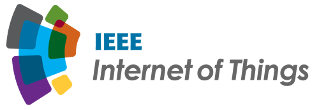IoT as a Key Enabler to Singapore’s Smart Nation Vision
Singapore has set its ambitions high to be the world’s first Smart Nation. IoT plays a critical role in helping us realise this vision. IoT is not just about being connected to multiple devices – it is about designing connected systems to deliver real value to individuals and organisations in a secure and equitable manner. IoT is a key enabler in improving our lives, helping to deliver more responsive public services, efficient work processes and better living experiences.
Responsive Public Services
At the national level, one of Singapore’s strategic national projects under our Smart Nation drive is the Smart Nation Sensor Platform, which aims to accelerate the deployment of sensors and other IoT devices to make our city more liveable and secure. This would serve a variety of purposes in the areas of security, transport or municipal services. For example, under the PolCam initiative, the Singapore Police Force has installed police cameras in high traffic public areas to further enhance the safety and security of our neighbourhoods and public spaces.
The use of technology is also helping us to create a reliable, convenient and cost effective public transport system that can quickly adapt to meet public demand. We are currently exploring rolling out autonomous public buses in some of our newer housing estates, to supplement manned buses and to enhance first and last mile connectivity for commuters.
Efficient Work Processes
At the industry level, IoT is a key frontier technology identified in Singapore’s Infocomm Media Industry Transformation Map. In a bid to create more intelligent data centres in Singapore, the Infocomm Media Development Authority (IMDA) is working with the National Supercomputing Centre of Singapore (NSCC) to optimise data centre energy consumption through the use of IoT, Big Data and Machine Learning technologies. Through this collaboration, we have developed intelligent sensing technology to profile the health of a data centre’s operations, detect anomalies and monitor its energy consumption. This can help to reduce the cost of data centre operations and enhance its workforce productivity.
Better Living Experiences
At the individual level, IoT is a powerful tool in improving the lives of Singaporeans. For example, the use of IoT goes a long way in helping our seniors age gracefully, while providing caregivers peace of mind while they are away from home. The number of elderly citizens in Singapore is expected to triple to 900,000 by 2030. We are currently test-bedding Smart Elderly Alert Systems in our newer residential estates. Sensors in the flat can monitor the movements of the elderly, and alert caregivers to irregularities, such as when no movement is detected for a prolonged period of time. Wireless panic buttons can also allow the elderly to alert their loved ones quickly in times of need.
In time, we will also launch a new telehealth initiative. The Vital Signs Monitoring system will enable the remote monitoring of vital signs such as the blood glucose level, blood pressure or weight of patients with conditions such as diabetes, hypertension, or heart disease. Patients will be able to receive more timely interventions to manage their health conditions without having to visit the hospital. This system will enable patients to receive more regular care in convenient locations of their choice, and improve the productivity of our healthcare professionals and providers.
Innovation
Singapore has been continually innovating to find new ways of harnessing IoT technologies and encouraging the adoption of IoT. We have been working toward developing cheaper and longer-lasting sensors for a wide variety of applications, from logistics to energy and water usage. Such sensors are driven by cutting edge Low Power Wide Area Network (or LPWAN) technologies such as NarrowBand IoT (or NB-IOT), and LTE Cat-M1. This would enable sensors to be deployed to places without power access, and reduce the cost of maintaining these sensors.
Besides a vibrant cluster of companies, Singapore has built peaks of research excellence as well as many synergistic public-private partnerships. The Agency for Science, Technology & Research or A*STAR’s Industrial IoT Research Programme is one such example. It harnesses multidisciplinary capabilities from A*STAR research institutes as well as our Institutes of Higher Learning, such as NUS, NTU and SUTD, to break new ground on technologies for cognitive and secure industrial IoT systems. These research outcomes are then piloted at A*STAR’s Singapore Institute of Manufacturing Technology (SIMTech) and Advanced Remanufacturing and Technology Centre (ARTC), allowing SMEs to test new technologies before their adoption. To further develop Singapore’s next-generation manufacturing sector, A*STAR has established an Industrial IoT consortium with 13 companies, as well as a Smart Manufacturing Joint Lab with Rolls Royce and Singapore Aero Engineering.
Singapore strongly believes in the importance of being connected to a global network of international partners – scientists, academics, experts in this field and industry players. In hosting the 2018 IEEE World Forum on Internet of Things, we saw a huge opportunity to be connected to the community from all over the world, and learn from the many exciting exchanges during the forum. We invite you to experience Singapore for yourself, and share with us your ideas on how IoT can be applied to make Singapore the world’s first Smart Nation.
 Low Teck Seng is the Chief Executive Officer of the National Research Foundation, Prime Minister’s Office, Singapore. He was previously the Managing Director of A*STAR (2010 – 2012). Professor Low was also the founding principal of Republic Polytechnic (2002 – 2008), as well as the Dean of the Faculty of Engineering in the National University of Singapore (1998 – 2000). He was the founding Executive Director of A*STAR’s Data Storage Institute (1992 – 1998).
Low Teck Seng is the Chief Executive Officer of the National Research Foundation, Prime Minister’s Office, Singapore. He was previously the Managing Director of A*STAR (2010 – 2012). Professor Low was also the founding principal of Republic Polytechnic (2002 – 2008), as well as the Dean of the Faculty of Engineering in the National University of Singapore (1998 – 2000). He was the founding Executive Director of A*STAR’s Data Storage Institute (1992 – 1998).
Professor Low was awarded the National Science and Technology Medal in 2004 – the highest honour bestowed on an individual who has played a strategic role in the development of Singapore through the promotion and management of R&D. He was also awarded the Public Administration Medal (Gold) in 2007 for his merit and service to Singapore. Professor Low is a Fellow of the Institute of Electrical and Electronics Engineering (IEEE) and an International Fellow of the Royal Academy of Engineering, UK.
Sign Up for IoT Technical Community Updates
Calendar of Events
IEEE 8th World Forum on Internet of Things (WF-IoT) 2022
26 October-11 November 2022
Call for Papers
IEEE Internet of Things Journal
Special issue on Towards Intelligence for Space-Air-Ground Integrated Internet of Things
Submission Deadline: 1 November 2022
Special issue on Smart Blockchain for IoT Trust, Security and Privacy
Submission Deadline: 15 November 2022
Past Issues
September 2022
July 2022
March 2022
January 2022
November 2021
September 2021
July 2021
May 2021
March 2021
January 2021
November 2020
July 2020
May 2020
March 2020
January 2020
November 2019
September 2019
July 2019
May 2019
March 2019
January 2019
November 2018
September 2018
July 2018
May 2018
March 2018
January 2018
November 2017
September 2017
July 2017
May 2017
March 2017
January 2017
November 2016
September 2016
July 2016
May 2016
March 2016
January 2016
November 2015
September 2015
July 2015
May 2015
March 2015
January 2015
November 2014
September 2014


